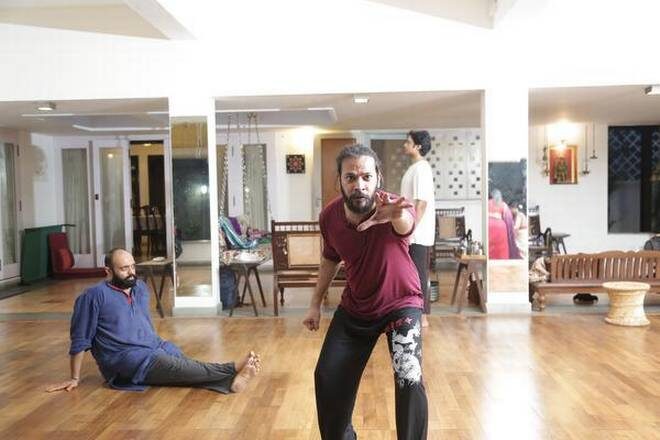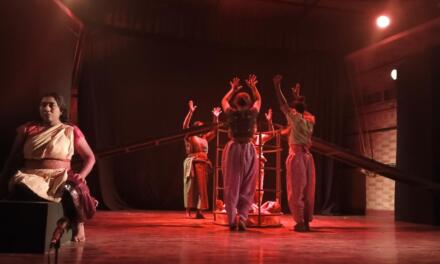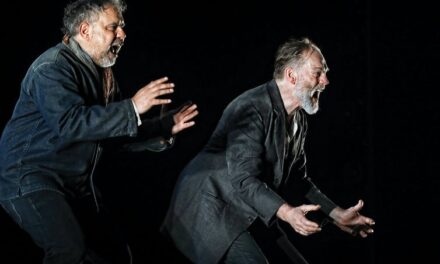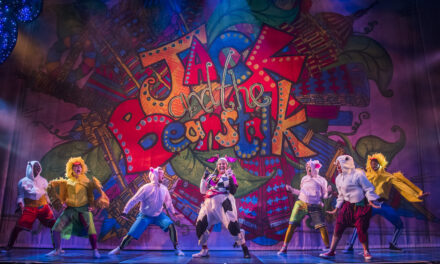 Chennai-based theatre director Prasanna Ramaswamy’s new play, This Is My Name, is an adaptation of Paul Zacharia’s Malayalam novella Ithanente Peru that interprets Nathuram Godse as a character.
Chennai-based theatre director Prasanna Ramaswamy’s new play, This Is My Name, is an adaptation of Paul Zacharia’s Malayalam novella Ithanente Peru that interprets Nathuram Godse as a character.
In May 1949, the Punjab High Court, then in session at Shimla, was knee-deep in its most important, high-profile case. Nathuram Godse, who would soon be sentenced to death for assassinating Mahatma Gandhi, made his final statement, sparking debate.
To this day, many interpretations of this speech remain active. In 2003, it resulted in Paul Zacharia’s critically acclaimed Malayalam novella, Ithanente Peru, which examines Godse’s defence of the assassination.
Many years on, Chennai-based theatre director Prasanna Ramaswamy manifests a physical form to this literarary work through her play, This Is My Name, produced by Chennai Art Theatre, which will reach audiences in Chennai, this weekend.
The novella shines light on Godse thinking about his actions and defending himself, by drawing parallels from history and other fundamentalist actions. Zacharia recalls, “I have read a lot on Godse. His defence speech especially, shows him as a peculiar character. You cannot but be struck by his argument. I think that left a mark in my mind… I am not a Godse lover, but here’s a strange character in human history! So I thought I’ll try to interpret him in my own way.” Ithanenta Peru thus came to fruition.
The powerful writing is what lured Prasanna to the work, seven years ago. Adapting this literary work into theatre was a challenge in itself, and this interpretation was particularly difficult to pull through.
Sarvesh Sridhar essays the role of Godse | Photo Credit: special arrangement
“In my previous work too, I have been speaking about perpetration, whether it be in the context of war, caste or any kind of oppression or marginalization, by bringing out the poetry of the victims. But, since almost 17-18 years, I have been thinking about how I can put the perpetrator on stage. And to do that, this [the book] is fantastic work,” says Prasanna.
This Is My Name, though derived largely from Zacharia’s work, is an interplay of multiple narratives written by Prasanna. The director has woven two intertexts into the play, pitching one against the other, about how any art form irrespective of whether it is part of a singular faith or not, has its own cultural richness and identity.
“Can’t we stay with it or work with it, without being fundamentalist? This is a personal question that I wanted to explore,” says the director. The other question looks at how pliable art is. The first parallel narrative features Bharatanatyam artiste Anita Ratnam.
et in the present, the scene depicts an interaction between Ratnam and a journalist who questions the contemporaneity of her work. “I am arguing that I won’t throw away the artform’s cultural richness just to prove a point. I can also make contemporary statements using past literature,” says Ratnam.
The scene resonates with Ratnam as an artiste, because it is an experience that she is not alien to, as a dancer who constantly employs traditional motifs in her work.
A physical form
Like Prasanna’s other plays, This Is My Name, with a strong cast of Nikhila Keshavan, Anita Ratnam, Sarvesh Sridhar, Nikhil Kedia, Dharma Raman and Darshan Ramkumar, too will rely on movement and music. Prasanna believes theatre should not limit itself to a spoken lingo. Visual art too plays a role in this production — artist Gurunathan Govindan has created three paintings which play a vital part in one of the sequences. Original music is composed by Anandhkumar and executed by singers Saranya Krishnan and Subhashri Vidya, and percussionist Guru.
For Prasanna, Ratnam, and most of the cast and crew, This Is My Name is also their first outing on stage since March 2020.
This Is My Name will be performed on April 9 and 11 at 7 pm at Alliance Française of Madras. Tickets can be purchased on BookMyShow.
This article was originally published by The Hindu on April 7, 2021, and has been reposted with permission. To read the original article, please click here.
This post was written by the author in their personal capacity.The opinions expressed in this article are the author’s own and do not reflect the view of The Theatre Times, their staff or collaborators.
This post was written by Gowri S.
The views expressed here belong to the author and do not necessarily reflect our views and opinions.


















